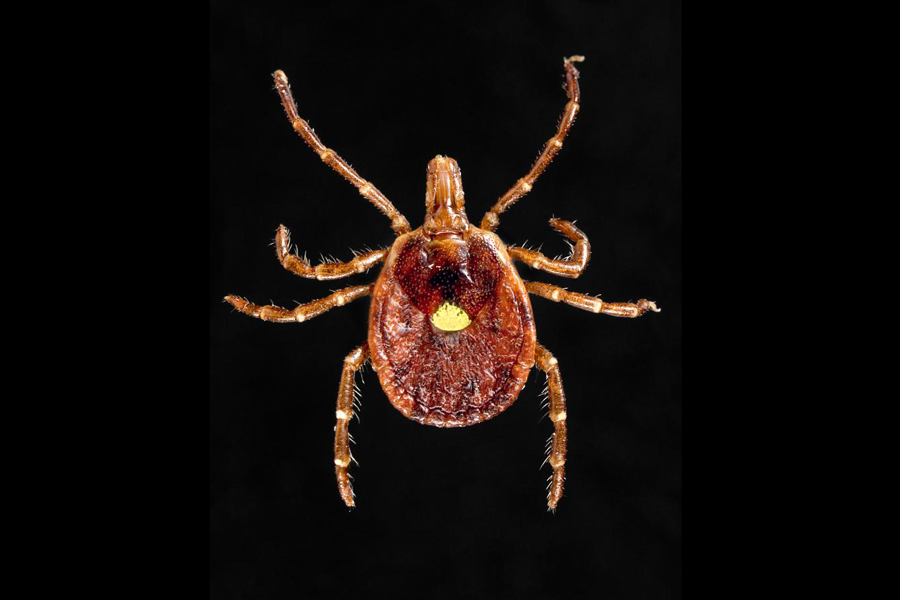The Really Strange Way a Tick Bite Could Harm Your Heart (Hint: It Involves Red Meat)

Get the world’s most fascinating discoveries delivered straight to your inbox.
You are now subscribed
Your newsletter sign-up was successful
Want to add more newsletters?

Delivered Daily
Daily Newsletter
Sign up for the latest discoveries, groundbreaking research and fascinating breakthroughs that impact you and the wider world direct to your inbox.

Once a week
Life's Little Mysteries
Feed your curiosity with an exclusive mystery every week, solved with science and delivered direct to your inbox before it's seen anywhere else.

Once a week
How It Works
Sign up to our free science & technology newsletter for your weekly fix of fascinating articles, quick quizzes, amazing images, and more

Delivered daily
Space.com Newsletter
Breaking space news, the latest updates on rocket launches, skywatching events and more!

Once a month
Watch This Space
Sign up to our monthly entertainment newsletter to keep up with all our coverage of the latest sci-fi and space movies, tv shows, games and books.

Once a week
Night Sky This Week
Discover this week's must-see night sky events, moon phases, and stunning astrophotos. Sign up for our skywatching newsletter and explore the universe with us!
Join the club
Get full access to premium articles, exclusive features and a growing list of member rewards.
People with a rare red meat allergy may have a higher risk of heart disease, a new study suggests.
Researchers found that people with higher levels of a particular antibody in their blood had an increased risk of atherosclerosis, or a hardening of the arteries. The antibody is formed in response to a compound in red meat known as alpha-gal (short for galactose-alpha-1,3-galactose).
Alpha-gal is a type of sugar found in red meat and some high-fat dairy products. But what's unusual about alpha-gal allergies is that some people don't develop the allergy naturally; instead, they develop it only after getting bitten by a lone star tick (Amblyomma americanum). [10 Important Ways to Avoid Tick Bites This Summer]
The lone star tick's saliva may contain alpha-gal, said lead study author Dr. Jeff Wilson, an allergy research fellow at the University of Virginia Health System in Charlottesville. So, when the tick bites a person, it exposes the individual to the alpha-gal and may trigger an immune response in the body. Then, when that person eats red meat and some dairy products, the body responds by producing antibodies to alpha-gal, Wilson said.
These antibodies can lead to symptoms associated with a red meat allergy, including hives, swelling in the lips and throat, or an upset stomach.
But not everyone who is sensitive to alpha-gal will develop allergic symptoms after eating red meat; however, they'll still have measurable levels of the alpha-gal antibody in their blood.
It's those antibodies, the new study found, that may contribute to a person's risk of atherosclerosis.
Get the world’s most fascinating discoveries delivered straight to your inbox.
Meat allergies and clogged arteries
In the new study, the researchers looked at 118 people ages 30 to 80 who lived in central Virginia. All of the participants had their blood tested and underwent an intravascular ultrasound — a test that produces detailed images of the lining of the coronary arteries.
After analyzing the participants' blood samples, the researchers found that 26 percent had detectable antibodies to alpha-gal, indicating a potential sensitivity to red meat. In addition, the artery scans of the people with these antibodies showed they had 30 percent more plaque buildup inside their arteries — a sign of atherosclerosis — than nonsensitized patients.
The researchers also found that plaque buildup in alpha-gal-sensitive patients' arteries tended to have a more unstable structure, meaning the patients had a higher risk for heart attacks and strokes. (Heart attacks and strokes can occur when a bit of the plaque breaks off and causes a blockage in a blood vessel.)
The upshot of the study is that the presence of alpha-gal antibodies in a person's blood could be a risk factor for coronary artery disease in some people, Wilson told Live Science. (Artherosclerosis can lead to coronary artery disease.)
The new study is the first to show a connection between a food allergen and heart disease, Wilson said, adding that it's still a new and preliminary finding, so more research is needed to confirm the results. In addition, the study was small, and it was done in an area that's considered a hotspot for lone star tick bites, he said. (Besides Virginia, other states with a high prevalence of these ticks include North Carolina, Tennessee, Missouri and Arkansas.) [9 Weirdest Allergies]
The new study found that about 20 percent of the people in a tick hotspot had signs in their blood that they had a red meat allergy, but not all of these people developed allergic symptoms after eating red meat, Wilson said. By some estimates, only about 1 percent of people in tick hotspots actually have symptoms of the allergy when they eat red meat, he noted.
Even though the exact mechanism linking the red meat allergy and atherosclerosis is not known, it could be that people with this immune response to red meat have low levels of chronic inflammation that, over time, could cause problems with their blood vessels, Wilson speculated.
Another limitation of the study, he noted, is that researchers did not know the participants' dietary habits or what allergies (alpha-gal included) they had.
Wilson said the next steps needed to confirm the findings are to run comparison tests by continuing to gather data from other people in tick hotspots in the southeastern United States, as well as from people in other regions of the country. It would also be helpful to track people over time to find out how many people with alpha-gal antibodies go on to experience heart attacks, compared with people who don't have these antibodies, he said.
The study was published online June 14 in the journal Arteriosclerosis, Thrombosis, and Vascular Biology.
Originally published on Live Science.
Cari Nierenberg has been writing about health and wellness topics for online news outlets and print publications for more than two decades. Her work has been published by Live Science, The Washington Post, WebMD, Scientific American, among others. She has a Bachelor of Science degree in nutrition from Cornell University and a Master of Science degree in Nutrition and Communication from Boston University.
 Live Science Plus
Live Science Plus










